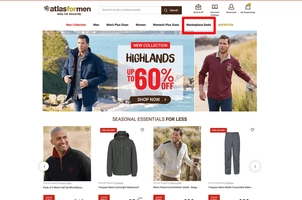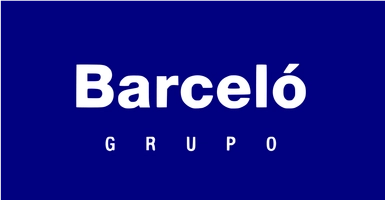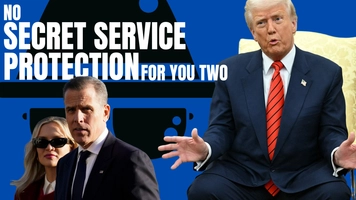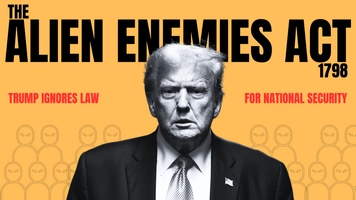Elon Musk’s Global Political Influence and Right-Wing Advocacy
Elon Musk’s political influence extends far beyond the U.S., shaping right-wing movements and policies across six continents.
Published Mar 11, 2025
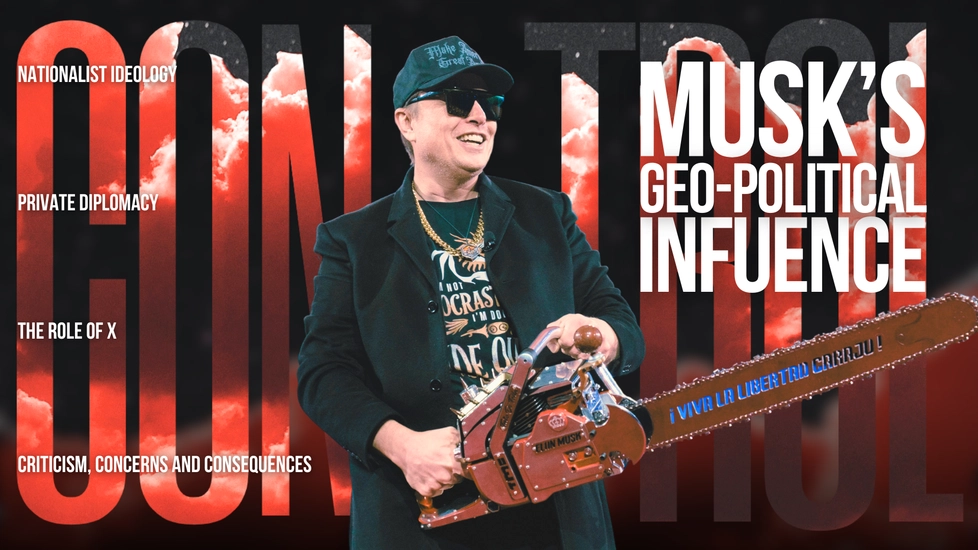
Table of Contents
- Musk’s Global Right-Wing Advocacy
- The Nationalist Ideology Behind Musk’s Advocacy
- The Role of X
- Private Diplomacy and Direct Engagement with Leaders
- Criticism and Concerns
- Economic Consequences
Elon Musk, the world’s richest man, has emerged as a powerful force in global politics. While his disruptive influence in the U.S. government is widely known, his impact extends across six continents.
Over the past two years, the Tesla CEO has backed right-wing leaders, policies, and nationalist movements in at least 18 countries. His advocacy ranges from social media endorsements to in-person meetings with political figures, making him a central player in reshaping political landscapes worldwide.
Musk’s Global Right-Wing Advocacy
Musk’s support for right-wing and far-right figures spans multiple nations, influencing policies, elections, and public discourse. Below is a breakdown of his political involvement in various countries:
North & South America
- Argentina: Musk has publicly supported President Javier Milei since September 2023, meeting him multiple times and praising his right-wing policies.
- Brazil: Former President Jair Bolsonaro has expressed strong support for Musk, awarding him an honorary medal in June 2022. Musk has endorsed right-wing demonstrations in the country.
- Canada: Musk has criticized Prime Minister Justin Trudeau since 2022 and recently expressed support for Conservative Party leader Pierre Poilievre.
- El Salvador: Musk hosted President Nayib Bukele at a Tesla factory in September 2024 and has since praised his leadership.
- United States: A key backer of Donald Trump, Musk has played a major role in the DOGE initiative aimed at reducing government spending and bureaucracy.
- Venezuela: Musk endorsed opposition leader María Corina Machado in July 2024 through multiple posts on X.
Europe
- Germany: Musk has expressed support for the far-right Alternative for Germany (AfD) party, interviewed its leader, Alice Weidel, and spoken at an AfD campaign event.
- Hungary: He met Prime Minister Viktor Orbán in December 2024 after previously voicing support for him on X.
- Ireland: Musk backed right-wing groups protesting mass immigration and criticized former Prime Minister Leo Varadkar.
- Italy: In June 2023, Musk met Prime Minister Giorgia Meloni to discuss AI and has since been a vocal supporter.
- Netherlands: He has endorsed nationalist politician Geert Wilders' views on immigration.
- Romania: Musk and right-wing politician Georgiana Teodorescu have exchanged support on X.
- United Kingdom: Musk initially supported Reform UK leader Nigel Farage in December 2024 but later withdrew his endorsement.
Asia & the Middle East
- India: Musk has met with Prime Minister Narendra Modi multiple times and has complied with censorship requests from his government.
- Israel: Prime Minister Benjamin Netanyahu has publicly defended Musk, calling him a “great friend of Israel.”
- Turkey: Musk has met President Recep Tayyip ErdoÄan multiple times, and his platform X complied with censorship demands before Turkey’s 2023 elections.]
Africa & Oceania
- New Zealand: Musk congratulated National Party leader Christopher Luxon on becoming Prime Minister in 2024.
- South Africa: Musk has criticized President Cyril Ramaphosa, accusing him of enacting “racist ownership laws.”
The Nationalist Ideology Behind Musk’s Advocacy
A key theme in Musk’s global political involvement is his endorsement of nationalist policies. He has repeatedly supported leaders who advocate for stricter immigration controls, cultural preservation, and economic deregulation.
In Italy, he has aligned with Prime Minister Giorgia Meloni’s nationalist agenda, while in the Netherlands, he has expressed agreement with right-wing politician Geert Wilders’ views on immigration. Musk’s advocacy often transcends his business interests, reflecting a broader ideological alignment with right-wing populist movements.
The Role of X
Musk’s ownership of X (formerly Twitter) has further amplified his political influence. With over 217 million followers, his endorsements and statements reach a vast audience, directly impacting political discourse.
His social media platform has also been criticized for complying with censorship requests from right-wing leaders in countries like India and Turkey, further solidifying his role as a political broker. His ability to shape narratives through X has positioned him as a key influencer in global politics despite lacking an official political role.
Private Diplomacy and Direct Engagement with Leaders
Beyond online advocacy, Musk has engaged in direct diplomacy with world leaders. His meetings with politicians such as Indian Prime Minister Narendra Modi, Hungarian Prime Minister Viktor Orban, and Turkish President Recep Tayyip Erdoğan illustrate his active participation in shaping global policy.
His involvement in government affairs has even extended to the Trump administration, where he has played a significant role in policy discussions and international relations.
Criticism and Concerns
Musk’s political involvement has sparked criticism from leaders and analysts who view his actions as an overreach of private influence in public governance. French President Emmanuel Macron has accused him of promoting a “new international reactionary movement.”
Some U.S. lawmakers have also questioned his ethics, arguing that his advocacy often serves his personal and business interests rather than public welfare. These concerns have intensified with recent legal challenges, including the lawsuit where Elon Musk and Donald Trump were sued by 14 states over their alleged unconstitutional role at DOGE. Despite these criticisms, Musk continues to expand his political footprint, raising concerns about the growing role of billionaires in shaping global politics.
Economic Consequences
Musk’s growing political influence has not been without consequences. His endorsements of controversial political figures have sparked protests in several countries, affecting Tesla’s operations and market performance. In Germany, for example, Musk's support for the far-right Alternative for Germany (AfD) party led to a 60% drop in Tesla's sales in the country.
Similarly, in Portugal, protests erupted at Tesla showrooms due to Musk's backing of far-right parties across Europe, coinciding with a 45% decline in Tesla's European sales in January.
In the United States, Musk's involvement in the Trump administration's Department of Government Efficiency (DOGE) has led to nationwide protests and boycotts against Tesla. Demonstrations have occurred at Tesla dealerships in cities like New York, San Francisco, and Kansas City, with activists urging the public to divest from Tesla. These actions have contributed to a 50% drop in Tesla's stock value after peaking in mid-December of last year.
International Responses to Musk's Political Influence
In response to concerns about the political power of billionaires and potential foreign interference, several countries have implemented measures to limit such influence:
- Australia: The Australian government has enacted the Foreign Interference (Countermeasures) Act 2021 to address foreign interference in domestic affairs. This legislation allows for the designation of individuals as politically significant persons and the restriction of foreign influence in political processes.
- European Union: The EU has implemented the Digital Services Act, aiming to create a safer digital space by holding online platforms accountable for illegal and harmful content. This act seeks to curb the power of influential tech figures and reduce the spread of misinformation.
- Germany and Canada: Both countries have introduced laws to counteract the abuse of power and influence by wealthy individuals in politics. Germany's regulations focus on increasing transparency in political donations, while Canada has enacted measures to limit foreign interference in elections.
Elon Musk is more than just a billionaire entrepreneur; he is a global political force shaping right-wing movements worldwide. By leveraging his wealth, social media platform, and direct engagement with world leaders, he has positioned himself as a major force in right-wing political movements worldwide.
As his influence continues to grow, so do the concerns about the consequences of a single individual wielding such power on a global scale.
Also Read:
- Nearly 250,000 Canadians Sign Petition To Revoke Elon Musk’s Citizenship
- DOD Directs Employees To Ignore Elon Musk’s Federal Productivity Survey
- Millions Listed as Over 100 in Social Security Database—Musk Alleges Massive Fraud
Write a comment
Comments
No Comments Yet
Related Posts
Trending
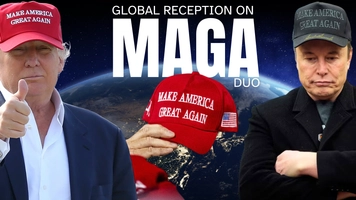
Global Reactions To The MAGA Duo: Trump And Musk’s Alliance Under The Microscope
Amanda Lee Swanson
• Apr 10, 2025
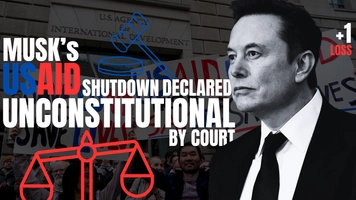
Judge Rules Against Musk’s USAID Shutdown, Orders Immediate Reinstatement
Amanda Lee Swanson
• Mar 23, 2025
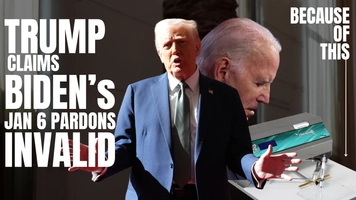
Trump Seeks To Invalidate Biden’s Pardons, Citing Autopen Signatures
Amanda Lee Swanson
• Mar 19, 2025

